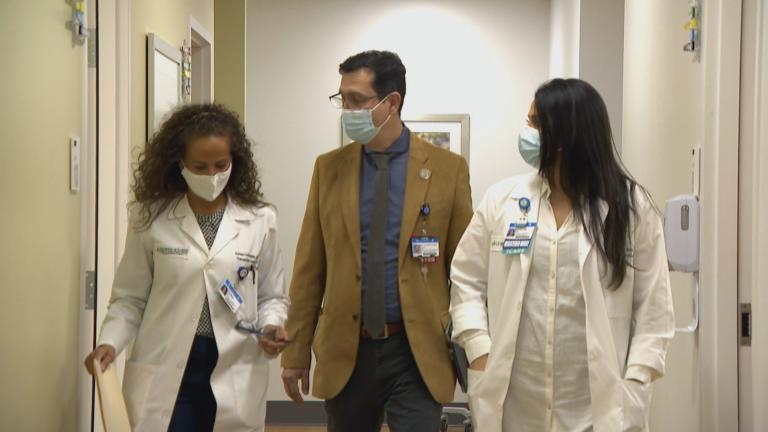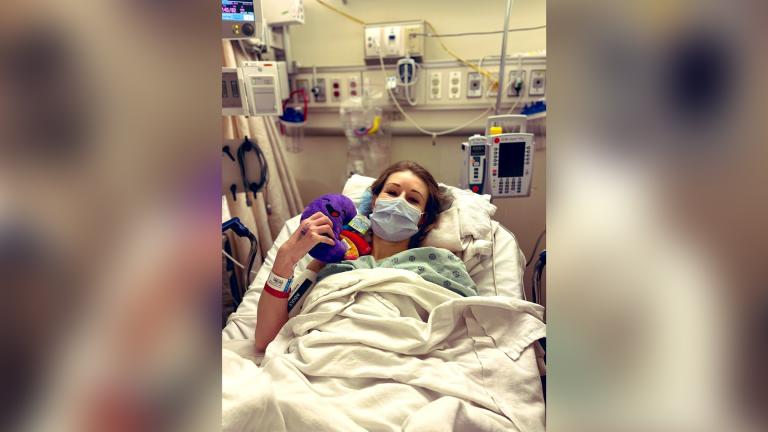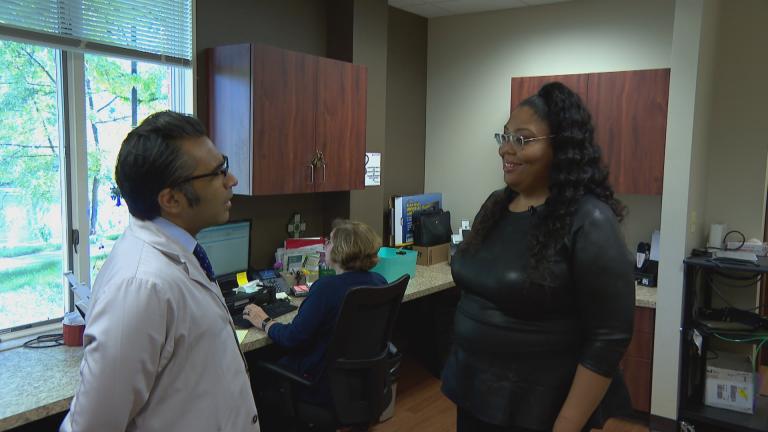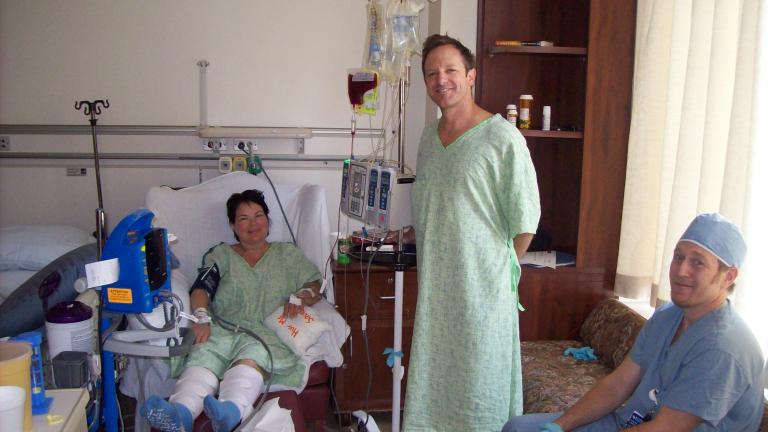April is National Donate Life Month and according to the Health Resources and Services Administration, or HRSA, nearly 43,000 transplants were done last year — a record number.
Despite more people receiving organs, it’s still not enough to meet high demand. Recently, the U.S. government announced a plan to revamp the way organ recipients are chosen and organs distributed.
The nonprofit United Network for Organ Sharing, known as UNOS, is currently the only organization contracted by the government to oversee the system.
It has faced criticism over its management of the massive and complex apparatus that allocates organs to patients.
Life hasn’t been the same for Christine Hernandez for the last seven years.
“I basically stick myself here and here or here. I can stick myself all along this way to give myself dialysis. So this is my life support,” Hernandez said.
She was a nurse before being diagnosed with a rare disease that has caused her kidneys to fail. She’s been on the organ waiting list for four years.
“Dialysis is something I have to do to stay alive,” she said. “To be here another day and hope and pray I get that transplant.”
Recently, the federal government announced an initiative to revamp the waiting list and distribution. UNOS has been the sole operator of the system since the 1980s.
“The pros are breaking it up a little bit where you will be able to get groups for organ allocation or optimization of quality improvements. That could improve if you get more groups involved in the process,” said Dr. Sanjeev Akkina, who works in transplants and nephrology at Loyola Medical Center.
So how does the system work? A federal agency, HRSA, oversees UNOS.
In turn, UNOS runs the nation’s Organ Procurement and Transplantation Network, or OPTN.
That’s a complex system made up of transplant hospitals and organ procurement organizations, or OPO’S, a huge operation that matches donated organs with people who need them. A system medical professionals like Dr. Divya Jain of Loyola Medical Center depend on.
“Let’s say you have Hospital A, and Hospital A has a patient that has just passed and that family would like to donate the patient’s organs. So then the (there is the) organ procurement organization for Hospital A, so we call that an OPO A. So Hospital A calls OPO A to let them know we have a patient who has passed and want organs to be donated,” Jain said. “They then notify the United Network of Organ sharing, UNOS. Then UNOS creates a list for these organs.”
UNOS has been criticized over its management of the system. Last year the Senate Finance Committee found the organization lost, discarded or failed to collect thousands of organs.
Furthermore, there are hundreds of complaints against the organ procurement organizations that UNOS manages.
“I think holding OPO’s more accountable would be an important aspect. That’s one thing they struggled with and I think the hearings highlighted there’s many underperforming OPO’s and little repercussion,” Akkina said.
U.S. Rep. Robin Kelly (D-Matteson) recently introduced a bill that would push the Health Resources and Services Administration to run a competitive process to choose multiple contractors to manage the transplant network, not just UNOS.
“We want to make sure the system is modernized and running in an efficient manner and that the information that needs to be out there can be easily found,” Kelly said. “...so people really know what they are getting into.”
According to the HRSA there are more than 100,000 people on the national transplant list. In Illinois, there’s roughly 4,000 people on the waiting list. Meaning people like Hernandez can wait years before they get that lifesaving phone call.
“I’m tired but I’m still fighting every day,” Hernandez said.
At one point Hernandez says she registered in multiple organ waiting lists through different hospitals. In the last four years, she’s received two calls she says ended in disappointment.
“The second time they called it was coming from the west coast and it was unfortunate because it was a good match … but they wouldn’t let the kidney get on the plane to bring it here,” she said. “I got this close.”
The government’s plan is to double funding for programming while updating technology, managing data and improving operations. But the idea of splitting responsibility concerns Hernandez.
“What if they start fighting for the same organ? What makes one more eligible than the other one? I feel like it’s going to be harder for people like me,” she said
In the meantime, Hernandez waits.
“It would be easier on a person’s heart if you could see where your number is. Just knowing where you are at least once a year, your status or where your number is versus not knowing anything,” she said.
In a statement, UNOS says it supports plan to revamp the organ transplant system and welcomes competition into the mix.






